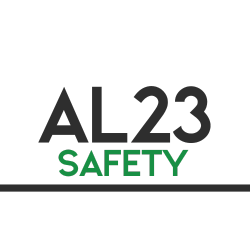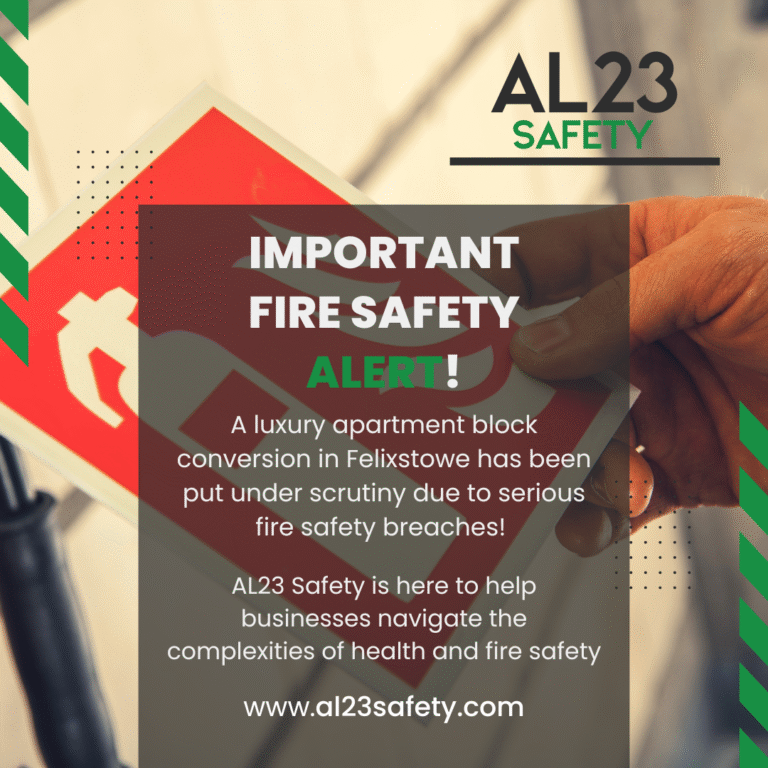In the dynamic realm of property development, fire safety compliance is far more than a formality. It is a critical safeguard. The recent court decision against Dragon Wood Homes Ltd in Felixstowe has sparked urgent debates across the sector, highlighting the grave risks of falling short on these standards. As Suffolk Fire and Rescue Service pointed out, lapses in fire safety compliance can endanger lives and trigger severe legal consequences for developers.
This case stands as a powerful wake-up call, reminding all involved of the strict legal duties tied to fire safety regulations. With property conversions on the rise, particularly into multi-occupancy homes, developers must grasp and apply essential fire safety measures right from the start of any project. From the initial groundwork, detailed assessments and continuous reviews are vital. These steps not only meet UK laws but also build a strong safety culture in construction and property development. The value of in-depth fire risk assessments cannot be emphasised enough.
They form the foundation for all safety plans and compliance work. AL23 Safety understands the challenges of managing these requirements and the need for customised safety approaches. Our consultants bring deep expertise in current laws and best practices, helping businesses in diverse sectors with confidence. We customise our fire risk assessments and plans to fit specific needs, making sure developments comply with rules and protect occupants. Continuous training and support play a key role in promoting active fire safety management. As we consider the Cliff House events in Felixstowe, it is clear that fire risk handling in property development demands serious attention.
AL23 Safety supports businesses in tackling health and fire safety complexities, guaranteeing compliance and pushing for better standards. Our focus is on stopping incidents before they happen. Every business should see safety as a core part of its operations, not a hassle. For full fire safety solutions that match the newest legal standards, check our services and allow us to help build safer spaces for all.
The Felixstowe situation, focused on the troubled Cliff House conversion, shows the dangers of ignoring fire safety compliance in multi-occupancy changes. With UK property conversions increasing due to housing needs, developers face intense demands for speed. However, rushing without care leads to trouble. This post explores five important lessons from the case, providing practical advice to strengthen your methods. Whether converting an old terrace or building a new apartment block, making fire safety compliance a priority protects residents, preserves your standing, and prevents financial losses.
The Serious Outcomes of Overlooking Fire Safety Compliance
First lesson: Breaches in fire safety compliance bring real and immediate dangers. The conviction of Dragon Wood Homes Ltd arose from major shortcomings in fire safety at Cliff House, a former seaside property turned into flats. Court details revealed poor fire doors, neglected escape paths, and faulty alarm systems that put residents at high risk. The probe by Suffolk Fire and Rescue uncovered clear violations of the Regulatory Reform (Fire Safety) Order 2005, which requires active risk control in non-domestic spaces.
The results included a large fine, damaged reputation, and a strong alert to the industry. Developers need to realise that fire safety compliance failures can lead to criminal cases, lawsuits, and stopped projects. Home Office figures show a 15% increase in fire incidents in conversions during 2024, heightening the need for action. To counter this, start fire safety compliance checks at the design phase. Involve qualified specialists early to identify weaknesses, from building strength to material fire risks. AL23 Safety offers personalised audits that have guided many companies away from these issues, turning risks into safe, compliant outcomes.
The Essential Need for Thorough Fire Risk Assessments
Second lesson centres on the heart of fire safety compliance: detailed fire risk assessments. The Felixstowe example showed how shallow checks, just forms without depth, fail when tested. Dragon Wood’s mistakes in evaluating occupant numbers and evacuation times added to the dangers, as the judge noted.
UK rules under the Fire Safety Order demand ongoing assessments covering threats like wiring problems, arson, and flammable cladding. For developers, this involves including assessments from the beginning, not later. Picture a shared stairwell in a multi-occupancy building acting as a fire hazard. A solid assessment spots this and recommends sprinklers or separation.
AL23 Safety consultants use modern techniques, combining site visits with computer models to forecast fire behaviour. We have aided projects from city lofts to countryside sites, keeping assessments updated through all stages. A strong fire risk assessment is not red tape. It is the plan for safety. Skip it, and you invite the problems seen at Cliff House.
Building Fire Safety Compliance into Every Project Stage
Third lesson: Fire safety compliance should run through all phases, beginning at the start. The Felixstowe failure demonstrates the error of adding safety fixes after building. Dragon Wood focused on looks over alerts, leaving the structure unprepared for fire threats once occupied.
Guidelines like Approved Document B in Building Regulations call for fire plans in design drawings. This covers fire-proof materials, planned divisions, and built-in detection. In heritage conversions, balance history with safety, such as special seals on old doors or wireless systems in protected buildings.
Advice: Work with fire experts in early planning. AL23 Safety shines in this, delivering custom plans that fit schedules and costs. Adding fire safety compliance from the outset avoids 20-30% extra expenses from late changes, based on Fire Protection Association data. Early focus complies and boosts project appeal to safety-aware clients.
How Continuous Training Supports Fire Safety Compliance
Fire safety compliance talks must include people. Fourth lesson. Perfect plans fail without skilled handlers. In Felixstowe, poor staff knowledge worsened risks, with slow reactions from vague procedures.
The Building Safety Act 2022 strengthens this, requiring frequent training for everyone, from managers to residents. Developers ought to run drills, online courses, and qualifications on topics like extinguisher handling and emergency contacts with services like Suffolk Fire and Rescue.
AL23 Safety training programmes suit the property field, with realistic exercises and progress monitoring. We trained more than 500 groups last year, cutting incident levels by up to 40% for clients. Treat training as a smart outlay in strength. The Felixstowe decision shows lack of knowledge leads to judgements.
Promoting a Strong Culture of Fire Safety Compliance in Development
Fifth lesson: Build a safety-led mindset in your team. The Dragon Wood issue reflected not just one error but a wider attitude where fire safety compliance lost out to gains. Real leaders make safety central to their identity.
This requires top-level support, checking suppliers for approved items, and open records. With Grenfell’s impact ongoing, the field needs responsibility, as per the Hackitt Review for broad improvements.
AL23 Safety works with developers to grow this mindset, supplying audits, plans, and support. Our complete method delivers compliance and superiority, averting crises. As property growth persists, use Felixstowe as the turning point for solid fire safety compliance.
To conclude, the Felixstowe story, with its verdict, stresses constant care in property development. Following these five lessons saves lives, follows laws, and creates trusted results. Avoid repeats. Contact AL23 Safety now for skilled help. Our fire risk assessments, training, and advice are made to advance your projects securely. Let us make spaces where safety is built in.



